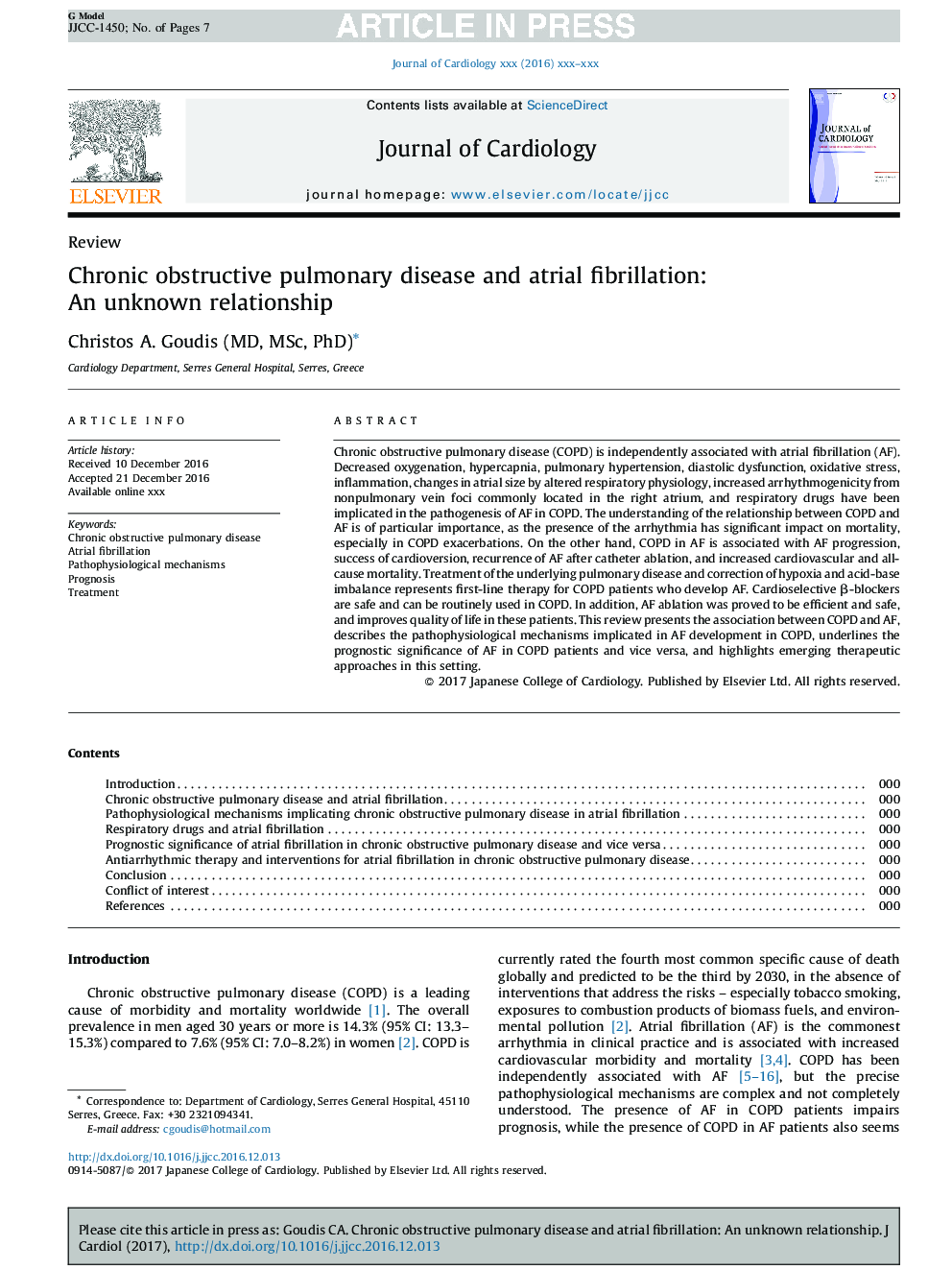| Article ID | Journal | Published Year | Pages | File Type |
|---|---|---|---|---|
| 5614558 | Journal of Cardiology | 2017 | 7 Pages |
Abstract
Chronic obstructive pulmonary disease (COPD) is independently associated with atrial fibrillation (AF). Decreased oxygenation, hypercapnia, pulmonary hypertension, diastolic dysfunction, oxidative stress, inflammation, changes in atrial size by altered respiratory physiology, increased arrhythmogenicity from nonpulmonary vein foci commonly located in the right atrium, and respiratory drugs have been implicated in the pathogenesis of AF in COPD. The understanding of the relationship between COPD and AF is of particular importance, as the presence of the arrhythmia has significant impact on mortality, especially in COPD exacerbations. On the other hand, COPD in AF is associated with AF progression, success of cardioversion, recurrence of AF after catheter ablation, and increased cardiovascular and all-cause mortality. Treatment of the underlying pulmonary disease and correction of hypoxia and acid-base imbalance represents first-line therapy for COPD patients who develop AF. Cardioselective β-blockers are safe and can be routinely used in COPD. In addition, AF ablation was proved to be efficient and safe, and improves quality of life in these patients. This review presents the association between COPD and AF, describes the pathophysiological mechanisms implicated in AF development in COPD, underlines the prognostic significance of AF in COPD patients and vice versa, and highlights emerging therapeutic approaches in this setting.
Keywords
Related Topics
Health Sciences
Medicine and Dentistry
Cardiology and Cardiovascular Medicine
Authors
Christos A. MD, MSc, PhD,
